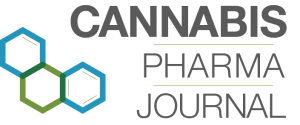GW’s Epidiolex Granted Orphan Drug Designation by European Health Regulators
The European Medicines Agency (EMA) has granted GW Pharmaceuticals’ investigational product Epidiolex (cannabidiol or CBD) orphan drug designation for treatment of Dravet syndrome.
The news sent GW shares up about eight percent.
Epidiolex has also received Fast Track designation by the US Food and Drug Administration (FDA) for treatment of Dravet syndrome, as well as orphan drug designations in both Dravet syndrome and Lennox-Gastaut syndrome (LGS).
GW said that it will soon start a full clinical development program for the drug in the treatment of both Dravet syndrome and LGS, working with leading pediatric epilepsy specialists across the US. The first Phase II/III clinical trial is scheduled to commence in the coming weeks.
The EMA orphan drug designation is assigned to drugs intended for use against rare conditions, affecting no more than 5 in 10,000 people in the European Union (EU). The designation provides pharmaceutical companies with incentives, such as reduced fees and protection from competition once placed on the market.
Dravet syndrome is a rare and catastrophic treatment-resistant form of childhood epilepsy for which there is currently no cure. Seizures begin in the first year of life in developing infants. Initial seizures are most often prolonged events and in the second year of life other seizure types emerge. All seizure types are remarkably resistant to medical therapy and the prognosis for Dravet syndrome is poor. Patients face a higher incidence of sudden unexplained death in epilepsy (SUDEP) and have associated co-morbid conditions, which also need to be managed properly.
Earlier this month, GW announced updated physician reports of Epidiolex treatment effect in children and young adults with treatment-resistant epilepsy participating in “expanded access” studies. Of the 58 patients in the report, 12 had Dravet syndrome. Those with Dravet syndrome reported a median overall reduction in convulsive seizure frequency of 51% to 72% across a range of time points and analyses. Somnolence and fatigue were the most common adverse events.
“Dravet syndrome represents a very substantial unmet need in Europe and a significant therapeutic challenge as many of the children suffering with this condition are resistant to current treatments and have exhausted all options,” said Justin Gover, GW’s Chief Executive Officer. “GW is now advancing a full clinical development program for Epidiolex in Dravet syndrome and looks forward to commencing this program in the coming weeks. We believe that the clinical effect and safety data recently released on Epidiolex support GW’s confidence in the prospect of ultimately enabling children with Dravet syndrome around the world to have access to an approved prescription on CBD medicine.”
Source: GW Pharmaceuticals plc
Last updated: 10/23/14; 11:30am EST



